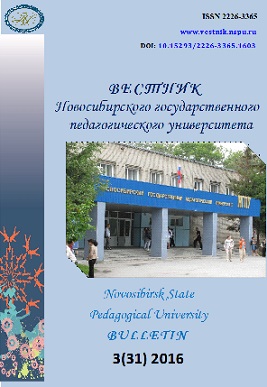Интерпретации различных аспектов образования в Великобритании
Interpretation of various aspects of education in the UK
Author(s): Olga Nikolaevna Sergeeva, Elena Vasilyevna AndrienkoSubject(s): Education, School education, Higher Education
Published by: Новосибирский государственный педагогический университет
Keywords: Lifelong learning; higher education; adult education
Summary/Abstract: The main purpose of the present article is to describe the historical background and the modern system of education in the UK including the sphere of lifelong learning. It discusses dif-ferent understandings of the concepts of “education”, “learning”, “training”, and “adult”. ‘Education’ is a term denoting formal teaching, as «образование» in Russian. ‘Learn-ing’ is used for describing quality changes of an individual as a result of formal or informal teaching, close to “uchenie” in Russian. The term ‘Training’ refers to short-term process of learning or teaching the skills and knowledge needed for a particular job or activity, (commonly within the framework of Continuing professional development, e.g. in-service training), it corre-sponds to the Russian word “trening”. The concept of “adult” might be approached on the ba-sis of age or maturity.One of the main trends in contemporary UK education is globalization. People are en-gaged in education regardless their age, social status, profession, race or ethnicity, sex or reli-gion.‘Lifelong learning’ is one of the key concepts in modern UK education. Its influence on the society development is described from the point of view of three sociological models: func-tionalist approach, structuralist approach, and social interaction. According to functionalism, each member of the society has his or her own role which they have to perform in the society, and the main task of education is to prepare them for performing this role. Structuralism states that there is constant power redistribution in the society between its groups, and education can be an instrument of this process. Social interaction approach explains how an individual can in-fluence the educational system. The materials for this article have been collected in the British Library. This project has been supported by charitable activity undertaken by Mikhail Prokhorov Fund.
Journal: Вестник Новосибирского государственного педагогического университета
- Issue Year: 6/2016
- Issue No: 3
- Page Range: 18-29
- Page Count: 12
- Language: Russian

